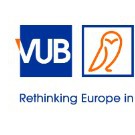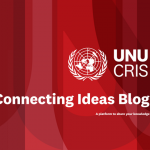New Blog by Philippe De Lombaerde and Andrew Dunn on the New Research Structure at UNU-CRIS

The world around us is a very different place today than it was just seven years ago. One could almost be forgiven for forgetting that fact given the whirlwind of the early 2020s, however, removing the elephant in the room that is Covid-19 and the extraordinary effect on all aspects of society it has had, the evolution, and not always in a positive sense, is clear for all to see.
In the past seven years, we have seen the tremors of a Grexit in 2015 foreshadowing the earthquake of Brexit the following year, possibly marking a tipping point of sorts from integration towards disintegration that has come to underline the movement in regional organizations since. 2018 marked the start of the dismantling of the once very promising UNASUR in South America. In the years immediately preceding the pandemic, the tone in the debates on the potential of regional (and global) cooperation had definitely changed, certainly compared to the optimism of the 1990s and early 2000s. Europe has seen what has been dubbed the worst migration crisis since World War Two, fuelling a populist backlash across the continent, born from rising nationalist sentiment and concerns over globalisation and growing inequality. Major tech companies have grown in size and power, leading to questions as to how big is too big, and how can our data be protected in a world where most live a hybrid life between the digital and physical realms. Russia’s invasion of Ukraine has had global ramifications, worsening already precarious food situations in Africa, soaring energy prices, and bringing about a “us or them” mentality scarily similar to the Cold War, driving wedges between major and minor powers. Simply put, multilateralism has come under increasing distress.
Please click here to read the entire blog.




